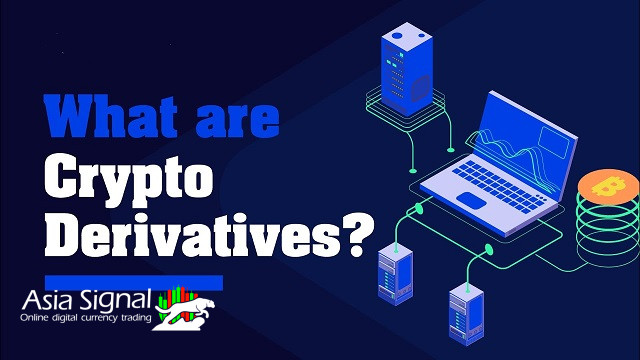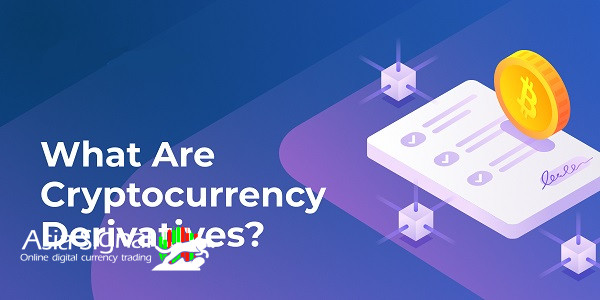Cryptocurrency perpetual contracts, also known as perpetual swaps or perpetual futures, are a type of derivative financial instrument commonly offered by cryptocurrency exchanges. They are designed to enable traders to speculate on the price movements of various cryptocurrencies without the need to own the underlying assets.
Crypto VIP Signal, Indicator Crypto, Crypto signal leaks, and Forex Signal Leaks are four outstanding platforms that have gained a reputation for providing top-notch cryptocurrency and forex trading signals.

Perpetual contracts have some key features:
1.No Expiry Date: Unlike traditional futures contracts that have a fixed expiration date, perpetual contracts do not have a specified end date. They are designed to last indefinitely, hence the term "perpetual."
2.Funding Rate:To keep the contract's price aligned with the underlying cryptocurrency's market price, perpetual contracts use a mechanism called funding. Funding is exchanged periodically (usually every few hours) between long and short contract holders. If the perpetual contract's price is trading higher than the underlying cryptocurrency's market price, long position holders pay funding to short position holders, and vice versa if the contract price is below the market price. This process helps prevent significant divergence between the contract price and the actual cryptocurrency price.
3.Leverage: Perpetual contracts typically offer leverage, allowing traders to control larger positions with a smaller amount of margin. For instance, with 10x leverage, a trader can control $10 worth of Bitcoin with just $1 in margin. However, it's important to note that trading with leverage involves higher risk, as gains and losses are amplified.
4.Settlement in Cryptocurrency: Profits and losses in perpetual contracts are settled in cryptocurrency rather than fiat currency. If you make a profit, you receive more cryptocurrency; if you incur a loss, you lose cryptocurrency.
5. Trading 24/7: Perpetual contracts are usually traded 24/7, providing continuous opportunities for traders to enter and exit positions, regardless of whether the underlying cryptocurrency market is open.
6.Mark Price: To calculate profits and losses accurately and avoid potential manipulation, most exchanges use a "mark price" derived from the average spot prices of the cryptocurrency across multiple exchanges. This mark price is used to determine the unrealized profit or loss in a position.
It's essential to understand that trading perpetual contracts involves significant risks due to their leveraged nature. While they can be used for hedging or speculation, they are best suited for experienced traders who are familiar with risk management strategies and have a good understanding of the underlying cryptocurrency market. As with any financial instrument, it's crucial to conduct thorough research and exercise caution when trading perpetual contracts.

What are Cryptocurrency Derivatives?
Cryptocurrency derivatives are financial instruments whose value is derived from the underlying cryptocurrency asset's price movements. These derivatives allow traders and investors to speculate on the price of cryptocurrencies without actually owning the underlying assets. They are popular in the cryptocurrency market as they provide opportunities for hedging, risk management, and leveraged trading.
Some common types of cryptocurrency derivatives include:
1.Futures Contracts: Cryptocurrency futures contracts are agreements between two parties to buy or sell a specified amount of a cryptocurrency at a predetermined price and date in the future. These contracts have a fixed expiration date and can be settled in cash or the underlying cryptocurrency.
2. Perpetual Contracts: As mentioned in the previous response, perpetual contracts are a type of futures contract that do not have an expiration date. They aim to track the underlying cryptocurrency's spot price closely and utilize a funding mechanism to keep the contract price aligned with the market price.
3. Options Contracts: Cryptocurrency options contracts give the holder the right, but not the obligation, to buy or sell a specific amount of the underlying cryptocurrency at a predetermined price (the strike price) on or before a specified expiration date. Options provide more flexibility for traders, as they can choose whether or not to exercise the contract.
4. Swaps: Cryptocurrency swaps involve the exchange of one cryptocurrency for another, often at a pre-agreed exchange rate. These can be used for speculative purposes or for hedging against price fluctuations.
5. Contracts for Difference (CFDs): Cryptocurrency CFDs are agreements between traders and brokers to exchange the difference in the price of a cryptocurrency from the time the contract is opened to the time it is closed. CFDs enable traders to speculate on price movements without owning the actual cryptocurrency.
Derivatives can provide various benefits, such as increased liquidity, the ability to profit from both rising and falling markets, and reduced exposure to risks associated with holding the actual cryptocurrency. However, they also come with higher risks due to leverage and potential market volatility. Traders should have a good understanding of the market, risk management strategies, and the specific features of each derivative product before engaging in cryptocurrency derivatives trading. Additionally, regulations governing cryptocurrency derivatives vary by country, so traders should also be aware of the legal and regulatory aspects in their jurisdiction.
Where to Trade Cryptocurrency Perpetual Contracts?
As of my last update in September 2021, several cryptocurrency exchanges offer perpetual contracts for trading. However, the cryptocurrency market is continually evolving, and new exchanges may have emerged since then. Additionally, some platforms may have changed their offerings or policies. Therefore, I recommend checking the latest information and reviews from reputable sources before deciding on a platform to trade cryptocurrency perpetual contracts.
Here are some popular cryptocurrency exchanges known for offering perpetual contracts:
1. Binance: Binance is one of the largest and most well-known cryptocurrency exchanges globally. It offers a wide range of perpetual contracts with various cryptocurrencies as the underlying assets.
2.BitMEX: BitMEX was one of the first exchanges to offer cryptocurrency perpetual contracts. It is known for its high leverage options, but it's essential to be cautious, especially due to regulatory concerns in some jurisdictions.
3. Bybit: Bybit is a derivatives-focused exchange offering perpetual contracts with various cryptocurrencies and leverage options.
4. FTX: FTX is a rapidly growing exchange that provides a wide range of perpetual contracts and other innovative trading products.
5. Huobi: Huobi is a well-established exchange that offers a variety of perpetual contracts for trading.
6. OKEx: OKEx is a cryptocurrency exchange that provides a broad selection of perpetual contracts and other derivatives products.
7. Kraken: Kraken offers a selection of cryptocurrency perpetual contracts with moderate leverage options.
8. Deribit: Deribit is a platform primarily known for its cryptocurrency options, but it also offers perpetual contracts.
When choosing a platform, consider factors such as security, fees, trading interface, leverage options, available cryptocurrencies, regulatory compliance, and user reviews. Additionally, make sure the exchange operates in your country or region and complies with local regulations.
Keep in mind that trading cryptocurrency perpetual contracts involves significant risks due to leverage and market volatility. It's crucial to have a good understanding of the products and the underlying assets, employ proper risk management strategies, and start with small positions if you're new to derivatives trading. Always do thorough research and consider seeking advice from financial professionals if needed.
Risks of Trading Cryptocurrency Perpetual Contracts
Trading cryptocurrency perpetual contracts involves several significant risks, and it's crucial for traders to be aware of these risks before engaging in this type of trading. Here are some of the key risks associated with trading cryptocurrency perpetual contracts:
1. Leverage Risk: Perpetual contracts often offer high leverage, which means traders can control larger positions with a smaller amount of capital. While leverage can amplify profits, it also magnifies losses. A small adverse price movement can lead to significant losses or even liquidation of the position if the account's margin falls below the required level.
2. Market Volatility:Cryptocurrency markets are known for their extreme price volatility. Rapid and unpredictable price movements can lead to substantial gains or losses in a short period. High volatility can make it difficult to predict price direction accurately.
3. Funding Rates: Perpetual contracts use a funding mechanism to maintain price alignment with the underlying cryptocurrency's spot market. Unpredictable changes in funding rates can lead to unexpected costs for traders and affect their profitability.
4. Liquidation Risk: When trading with leverage, the risk of liquidation is significant. If the position moves against the trader and their margin falls below the maintenance margin level, the exchange will automatically liquidate the position. This can lead to total loss of the invested capital.
5. Technical Issues: Like any online platform, cryptocurrency exchanges can experience technical glitches, downtime, or outages. Such issues can prevent traders from accessing their accounts or managing their positions effectively.
6. Regulatory Risk:Cryptocurrency derivatives trading may face varying degrees of regulatory scrutiny in different countries. Regulatory changes or actions may impact the operations of exchanges and the availability of perpetual contracts.
7. Price Manipulation: The relatively unregulated nature of the cryptocurrency market can make it susceptible to price manipulation. Traders may face challenges if prices are manipulated on the exchange they are using.
8. Counterparty Risk: Perpetual contracts are typically traded on centralized exchanges, which means traders face counterparty risk. If the exchange encounters financial difficulties or becomes insolvent, traders may have difficulty accessing their funds or positions.
9.Overtrading and Emotions: The fast-paced and volatile nature of cryptocurrency trading can lead to overtrading and emotional decision-making. Emotional trading decisions can result in significant losses.
10. Limited Market Depth: In times of high volatility, there may be limited market depth for certain cryptocurrencies, leading to higher spreads and slippage.
To mitigate these risks, it's essential for traders to:
- Educate themselves thoroughly about cryptocurrency markets, derivatives trading, and risk management strategies.
- Use leverage carefully and avoid excessive exposure to the market.
- Consider using stop-loss orders to limit potential losses.
- Diversify their trading strategies and not rely solely on perpetual contracts.
- Use reputable and secure exchanges with a track record of reliability and security.
- Start with small positions and gradually increase exposure as they gain experience.
Overall, trading cryptocurrency perpetual contracts can be highly rewarding, but it's essential to approach it with caution and discipline to manage the associated risks effectively.
Conclusion
In conclusion, cryptocurrency perpetual contracts are a type of derivative financial instrument that allows traders to speculate on the price movements of various cryptocurrencies without owning the underlying assets. They offer several advantages, such as no expiry date, funding mechanisms to maintain price alignment, leverage options, settlement in cryptocurrency, and 24/7 trading availability.
However, trading cryptocurrency perpetual contracts also comes with significant risks. These risks include high leverage leading to amplified losses, market volatility, funding rate fluctuations, liquidation risk, technical issues, regulatory uncertainty, price manipulation potential, counterparty risk, and the risk of emotional decision-making.
To engage in cryptocurrency perpetual contracts trading successfully, traders should educate themselves thoroughly, understand risk management strategies, and use leverage prudently. It's crucial to select reputable exchanges and be mindful of the potential challenges and limitations of this type of trading. Always conduct thorough research, start with small positions, and consider seeking advice from financial professionals if needed.
Remember that the cryptocurrency market is highly dynamic, and regulations may change over time, so staying updated with the latest information is essential for safe and informed trading.

















Comments